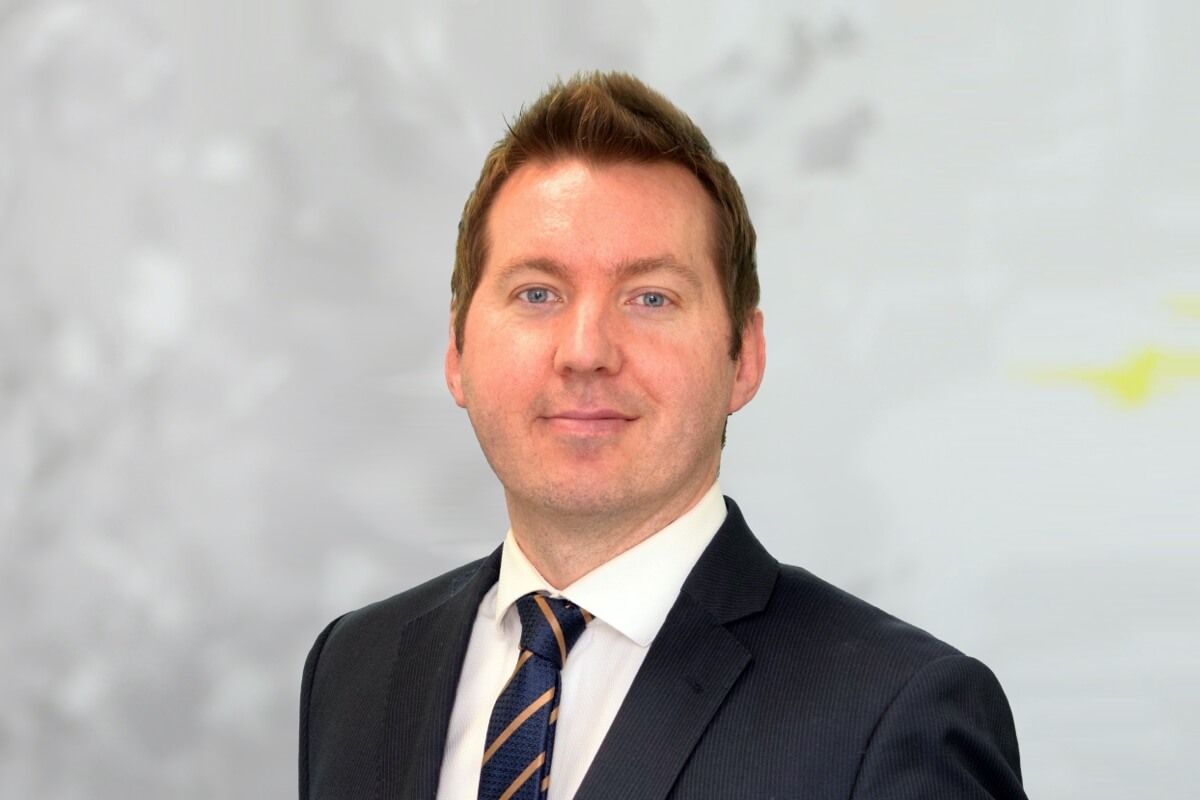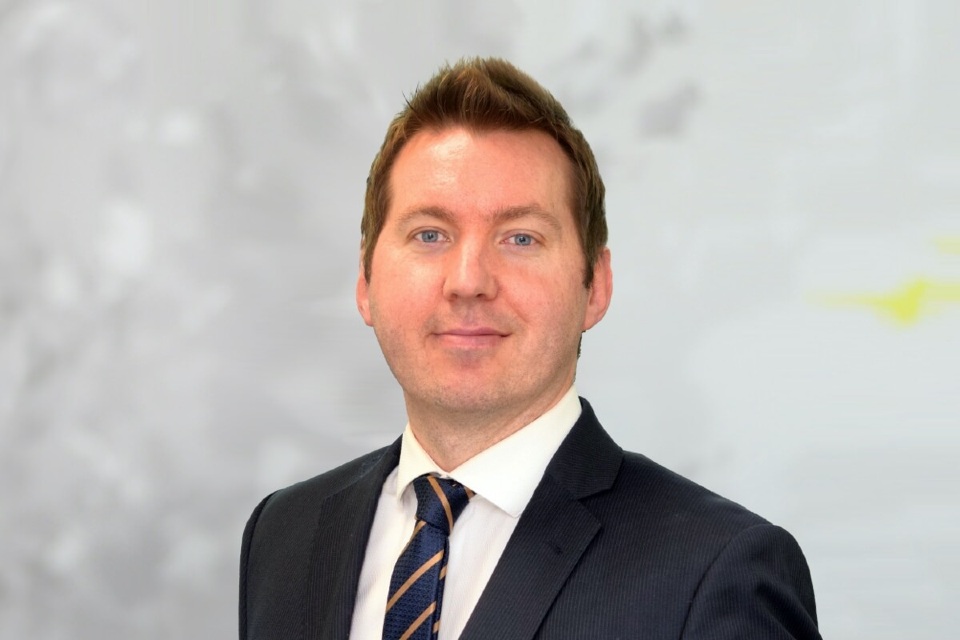Marc O’Sullivan and his award-winning Investments Team are responsible for the underlying portfolio management of Wesleyan funds. This includes the £4bn Wesleyan With Profits Growth Fund Series A which is proving popular with intermediaries and IFAs as part of their clients’ overall investment portfolios.
In this Q&A, Marc lifts the lid on the overarching investment strategy which underpins the Team’s approach. He also shares his thoughts on asset allocation and how the Team is currently positioning the fund in light of the significant challenges which investors are facing right now.
Q: How would you describe the Wesleyan Team's approach to investment management of the With Profits Fund?
A: We are long-term investors to the core. We're therefore passionate about assets that we believe will, over time, deliver strong financial returns for everyone who trusts us to invest their money wisely. With that in mind, we also have a Team of dedicated in-house Analysts working alongside me and the other Fund Managers, to generate and share investment ideas relating to their sectors.
As an Investments Team, we have a long-held preference for equities and commercial property, as we believe that those asset classes offer greater potential for future returns. Alongside this, we also maintain low turnover of portfolio assets. Typically, the fund holds a very high level of real assets, with almost 75% currently committed to equities and commercial property. However, it’s important to note that the With Profits Fund is multi-asset and contains government and corporate bonds, as well as cash. By making sure that we are diversified across and within asset classes, when appropriate, the portfolio meets the needs of its 'moderate-risk' rating while also maximising the likelihood of achieving long-term returns for investors, which is what the fund has been designed to deliver.
As a mutual society without shareholders, we are able to position the portfolio – and our asset allocation strategy – appropriately. The past few years have been particularly tumultuous for investors, with the Covid pandemic and war in Ukraine being just two examples of the challenges we have faced. We are also keeping a close eye on the developing crisis in the Middle East, as this could affect markets all over again. At Wesleyan, we have a track record of managing the fund through numerous market events, with other notable examples including the 2008 global financial crisis and the burst of the dot-com bubble.
As a Society, we've been around for over 180 years too, carefully managing people’s money throughout troubled times such as both World Wars. Regardless of what might be going on in the world, we are active managers who remain steadfast in our contrarian 'buy and hold' approach. In volatile markets, such as those we have seen throughout this year, we look for suitable investments and are more likely to be buyers rather than sellers. That’s not to say that we don’t pay close attention to market movements and daily news flow – we do – but we also remain focused on the bigger picture. That said, we’re not averse to taking some money off the table when markets have been strong – in such cases, we’re likely to then re-invest it in areas that we believe others have overlooked. Pleasingly, it’s an approach that has worked well and the fund’s long-term performance track record speaks for itself.
We take our role as stewards of our clients’ assets very seriously. In line with that, our dedicated Sustainable Investment (SI) Team leads on activities such as AGM (Annual General Meeting) voting and engaging with investee companies to help them improve on various ESG (Environmental, Social and Governance) issues. These can range from the carbon footprint of a company’s operations to human rights concerns, or health and safety protocols to the diversity of its Board members. We also use our corporate voting rights strategically, to help us in these conversations with companies. Ultimately, we do this because it’s the right thing to do for all concerned but, crucially, because we believe that sustainable companies are more likely to perform well in the future, which aligns with our investment strategy.
Q: You mentioned commercial property exposure within the fund. Does that form a significant element within the overall portfolio?
A: Commercial property currently makes up around 10% of the With Profits Fund. We own and manage approximately 100 different property assets located in towns and cities across the UK, valued at approximately £400m. These properties include offices, industrial units, retail shops, and other specialist buildings such as restaurants, bars, hotels, car showrooms and petrol filling stations. The portfolio has over 200 tenanted units, generating just under £30m every year from rent. Why commercial property? For us, it provides a reasonably stable income return each year of about 6% and acts as a diversifying asset in our portfolio.
Q: Is sustainable investing an important part of your asset allocation strategy? How do you embed this within your processes?
A: We have an overarching belief in the importance of sustainable and responsible investing. I mentioned our SI Team earlier, and they work alongside all our Analysts and Fund Managers to provide challenge on ESG issues in any company we are looking to invest in. That way, we capture all views, meaning that SRI (Socially Responsible Investment) considerations are integral to all fund management decisions.
Our general approach to investing in companies is built on three main pillars, which are covered in Wesleyan’s Sustainable Investing Policy: reducing harm, positive impact and driving change.
Energy companies have been leading some of the global equity returns that we've seen in recent times. Under the 'reducing harm' pillar, we still invest in energy companies, which helps us to maintain portfolio diversification; however, we will only invest in an oil and gas company if it extracts in a responsible manner and has a comprehensive commitment to be carbon net zero by 2050. In terms of 'positive impact', we invest in companies that actively combat climate change as well as those that improve well-being and access to healthcare and education facilities. Generally, this pillar is focused on improving people’s lives. And finally, when it comes to 'driving change', we're committed to engaging with the businesses we invest in to help them along the path to sustainability, so they too can make a better contribution to the environment and wider society.
Overall, we have plenty of scope to ensure our With Profits Fund achieves its long-term growth objectives while aligning with our Sustainable Investing Policy's three pillars. By doing so, this ensures that sustainable, responsible investment is at the heart of our fund management approach.
Q: How would you sum up the investment challenges for you and the Team throughout the remainder of 2023? And, where are you positioning the portfolio for the challenges that lie further ahead?
A: 2023 has proven to be another turbulent year for equity and bond markets so far. UK equities have continued to lag behind their overseas peers, and UK bonds have continued to struggle in a high-interest rate environment. In particular, UK government bonds have not fully recovered from the mini budget fiasco in 2022.
On a macroeconomic level, inflation fell sharply in October to its lowest rate in over two years - down from 6.7% the previous month to 4.6%. This is still some way off the 2% target set by the Bank of England (BofE) and is unlikely to impact any decision to cut interest rates in the near future in order to reach this target. When compared with the US, Germany, and France, for example, the UK inflation rate remains one of the highest.
We have avoided a recession in the UK so far this year, but it is currently predicted by the BofE that there will be no real economic growth in 2024. Elevated prices caused by the cost-of living-crisis, and higher interest rates, will continue to put the squeeze on consumers and businesses alike.
As we look to our future asset allocation strategy, we are starting to see long-term fixed income assets providing better yields. High interest rates continue to present us with more attractive opportunities in both corporate bonds and government bonds as returns look increasingly appealing. We continue to favour equities and property as we feel they are best equipped to deliver competitive long-term returns versus other major asset classes, over time. As financing costs bite, we are seeing attractive opportunities in UK commercial property, and we will consider acquisitions that present themselves. Through our active stock selection, we continue to diversify our equity portfolio and look to invest more into overseas and emerging markets.

